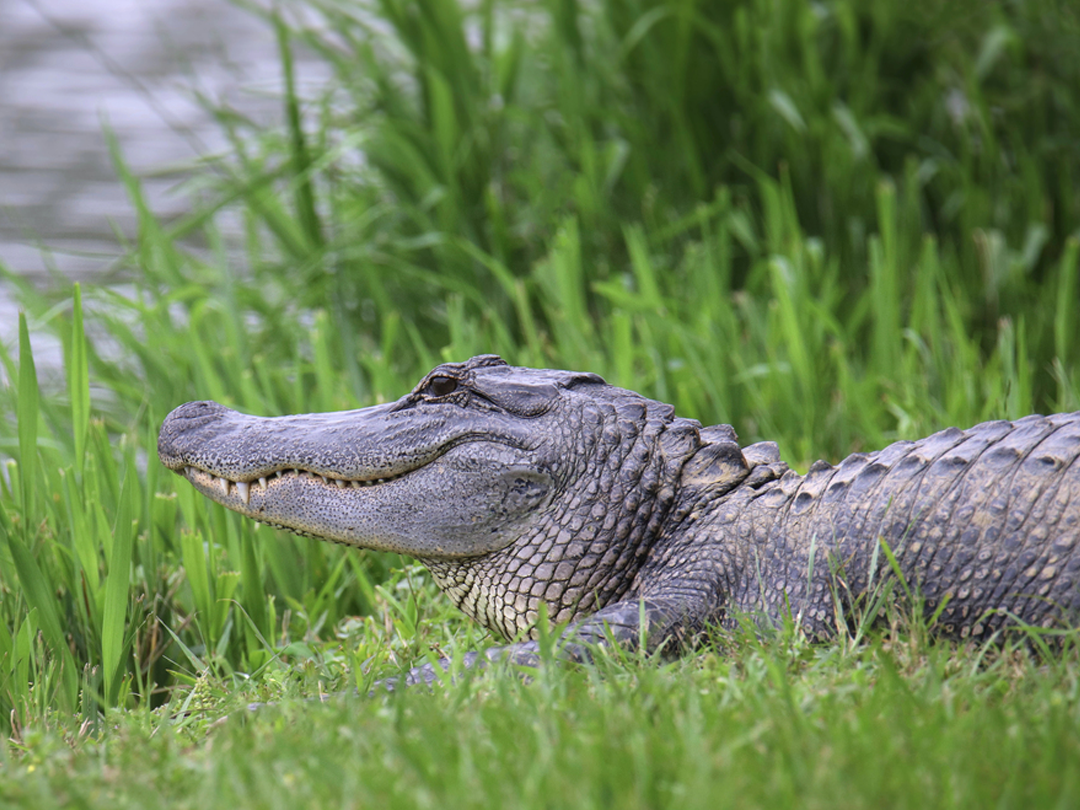Why Is Alligator Hunting Legal?

Alligator hunting is a unique and regulated activity that many people don’t fully understand. If you’ve ever asked, “Why is alligator hunting legal?” you’re not alone. This practice, while uncommon, serves important ecological and safety purposes. Trophy Gator Hunts in Florida has been leading alligator hunting adventures since 1988, with a reputation for safety and success. In this article, we will explore the reasons behind the legality of alligator hunting, why alligator season is only 30 days, and why hunting, in general, is legal in the U.S.
Understanding Alligator Hunting
Alligator hunting has a long and fascinating history in the U.S., particularly in the southern states like Florida, where these creatures are most abundant. In the early 20th century, alligator populations faced near extinction due to overhunting, habitat loss, and other factors. However, thanks to conservation efforts and legal protections, alligator numbers have significantly rebounded. The practice of alligator hunting is now tightly regulated to ensure populations remain healthy and balanced within the ecosystem.
You might be happy to find out that alligator hunting offers an exhilarating and unique experience that combines skill, patience, and adrenaline. As a challenging hunt, it requires strategic planning and expert knowledge of alligator behavior and habitat. The benefits of alligator hunting go beyond the thrill; it’s an opportunity to connect with nature and engage in a sustainable, regulated sport. Successful hunters gain not only the satisfaction of a trophy but also valuable insights into wildlife management. Alligator hunting can also provide high-quality meat and leather, making it a rewarding experience for those looking to enjoy both adventure and practicality in one.
Conservation Efforts and Population Control
The primary reason why alligator hunting is legal is that it plays a crucial role in maintaining a balanced and healthy alligator population. Alligator populations, once on the brink of extinction due to overhunting and habitat destruction, have made a remarkable recovery over the past few decades. This recovery is a direct result of effective conservation programs, habitat restoration, and, importantly, regulated hunting.
By carefully controlling hunting seasons and limits, wildlife management authorities ensure that only older, non-reproducing alligators or those in overpopulated areas are harvested. This process helps reduce the risk of overpopulation, which could lead to environmental imbalances, while also ensuring that younger alligators have the chance to grow and reproduce, further strengthening the species’ sustainability.
Regulated Hunting for Safety
In certain areas, particularly those near urban or residential developments, alligators can pose significant safety risks to humans. As alligator populations have steadily grown due to conservation efforts, the likelihood of human-alligator conflicts has also increased. These encounters often happen when alligators venture into populated areas in search of food or territory, which can lead to dangerous situations for people, pets, and livestock.
By regulating and allowing hunting in these areas, authorities can keep alligator numbers in check, reducing the chances of such conflicts. Legal hunting helps ensure that the alligator population is manageable, preventing it from reaching numbers that could overwhelm ecosystems and increase risks to public safety. This controlled approach maintains the delicate balance between human activity and wildlife conservation.
Why Is Alligator Season Only 30 Days?
Many hunters wonder, "Why is alligator season only 30 days?" The answer lies in preserving the delicate balance between hunting and conservation. A limited hunting season ensures that the alligator population is not overexploited, maintaining its health and stability. The 30-day timeframe provides hunters with a regulated window to harvest alligators at a time when their numbers can be managed without affecting the overall ecosystem.
This short season is designed to prevent disruptions to breeding cycles, ensuring that young alligators are not harmed and that the species can continue to thrive for future generations. Additionally, it allows authorities to monitor the population closely and make necessary adjustments to hunting regulations as needed.
Legal Framework and Hunting Licenses
In the U.S., hunting is legal due to strict regulations set forth by local and federal governments. Every state with alligator populations has regulations that require hunters to obtain special permits or licenses, which are essential for controlling the harvest. These regulations ensure that hunting is done safely and in a manner that prevents overexploitation.
They also help preserve biodiversity by setting limits on how many alligators can be hunted and by monitoring the population. The legal framework not only protects both hunters and wildlife but also ensures that hunting is fair, ethical, and sustainable, fostering long-term ecosystem health. Additionally, these regulations provide critical funding for conservation programs and wildlife protection initiatives.
Ecological Impact of Alligator Hunting
Alligator hunting, when properly regulated, can have a positive ecological impact by helping control the alligator population and maintain the balance of local ecosystems. As apex predators, alligators play a crucial role in regulating the populations of other species, which in turn helps keep the habitat healthy and diverse. However, when their numbers grow too high, overpopulation can lead to disruptions in the food chain, negatively affecting other wildlife and plant life.
Hunting helps prevent this by targeting older, non-reproducing alligators, ensuring that younger, breeding individuals continue to thrive. By carefully managing the population, hunting helps preserve the ecological integrity of the environment and promotes the long-term sustainability of alligator species. This controlled hunting process also helps reduce human-wildlife conflicts, further enhancing community safety.
Economic Benefits of Legal Hunting
Legal alligator hunting provides significant economic benefits to local communities by creating jobs and stimulating local economies. Hunters, guided tours, and the sale of alligator products, such as meat and leather, contribute to the income of local businesses, from restaurants to taxidermists.
For companies like Trophy Gator Hunts, offering guided hunting experiences not only generates income but also supports wildlife conservation initiatives. This sustainable approach ensures the long-term health of both the alligator population and the local economy, making hunting a vital part of the community's livelihood.
Ethical Considerations and Sustainability
Many people question whether hunting is ethical, but when done sustainably and with respect for the environment, it can be. The legality of hunting in the U.S. is rooted in ethical guidelines that ensure hunters follow strict regulations and that wildlife populations are preserved. These regulations are designed to minimize harm, prevent overexploitation, and maintain ecological balance.
Alligator hunting, as practiced by experienced guides at Trophy Gator Hunts, adheres to these ethical standards, making it a responsible way to engage with nature. By focusing on sustainable practices, our hunts help control populations and contribute to the long-term health of the species, ensuring a positive impact on local ecosystems.
Why Is Hunting Legal in the U.S.?
Hunting is legal in the U.S. because it is a part of managing natural resources. It serves not only as a method of population control but also as a means to fund conservation efforts. Hunters contribute to wildlife management through licensing fees, taxes on hunting equipment, and donations. This funding supports conservation initiatives that protect wildlife habitats across the nation. In the case of alligators, hunting ensures that their populations remain healthy and in balance with the environment.
Alligator hunting, when properly regulated, plays a key role in both conservation and safety efforts, helping to maintain ecological balance and reduce human-wildlife conflicts. Trophy Gator Hunts is here to guide you through an unforgettable experience, offering expert-led hunts with a 100% success rate. Whether you're an experienced hunter or new to the sport, we provide you with the expertise and support needed for a safe and sustainable hunt.
Trust our team to deliver an exciting adventure while ensuring that alligator populations in Florida are responsibly managed for the future. We are committed to preserving the environment, making every hunt both thrilling and impactful.

